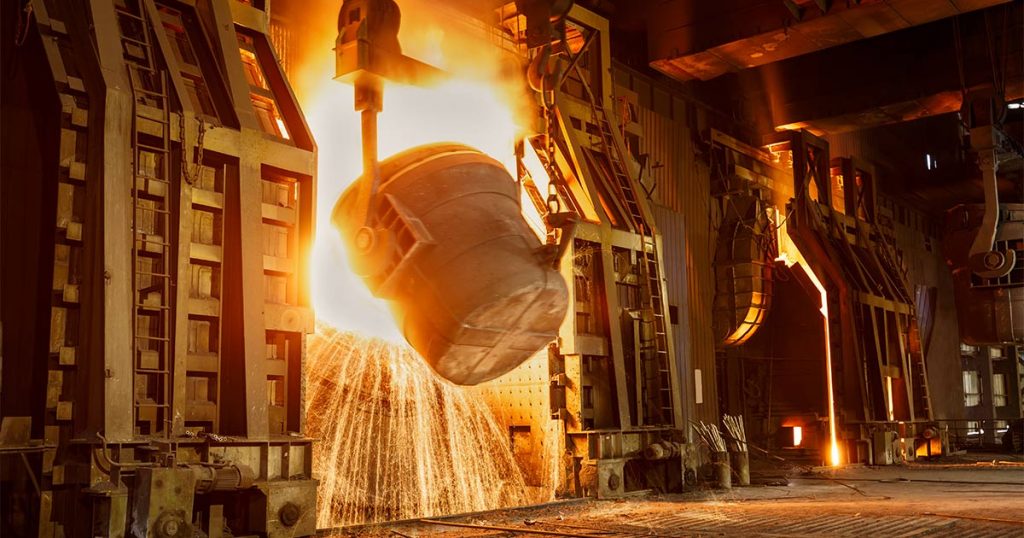Disco plant work 90 precent complete
MASSIVE progress is being made at the US$1,5 billion Dinson Iron and Steel Company (Disco) plant in Manhize, Chirumhanzu District in Midlands Province, where about 90 percent of the works have been completed.
As the blast furnace superstructure is inching close to completion, the investor has increased manpower to expedite the construction of the power line linking Sherwood in Kwekwe to the new giant factory. The completion of the blast furnace superstructure and the availability of power are critical steps before the commencement of production in the next two months.
Iron ore mining and stock-piling are ongoing while procurement of coke from Hwange has begun as part of preparations for full-scale production.
Indications are that production is likely to commence at the end of April, starting with pig iron, followed by steel billets in May and steel bars in October.
Disco is projecting to produce 600 000 metric tonnes of products in the first phase rising to 1,2 million tonnes in the second phase then 3,2 million tonnes in the third phase and ultimately five million tonnes per year in the final phase.
So far, the project has absorbed 1 500 workers, and more will be roped in going forward. Disco is a subsidiary of Chinese iron and steel giant, Tsingshan Holdings and started implementing the project in June 2022 when preliminary works began on the site. The giant investment has positioned Zimbabwe among the global steel manufacturing hubs, with projections indicating the country’s potential to emerge as the future powerhouse in the steel and iron industry.
In an interview yesterday, Disco public relations manager, Mr Joseph Shoko, said all sections at the plant were above 90 percent towards commissioning.
“We are moving towards the final lap of the first phase so that we can start production any time before the end of April with most of our sections above 90 percent,” he said.
“We have started mining and so far, have accumulated substantial amounts of iron ore. We have also started bringing in coke from Hwange and soon we also start to bring limestone from Masvingo.”
Mr Shoko explained that there are key components namely the blast furnace, centering plant, power, laboratory, and the workshop that must be completed before production starts.
He said the laboratory has started to function while the company has since recruited 15 laboratory technicians who work under the tutelage of a foreign expert.
“A workshop no doubt the biggest in the country is highly mechanised. Going forward we are capable of producing high-volume pipes for water. In fact, the workshop can be of use for big projects like the Gwayi Shangani pipeline project,” said Mr Shoko.
“We can do 1.8-metre diameter steel pipes. The workshop does all sorts of fabrication. So, it will be for use not only for the company but the country at large.”
Other products that the company will eventually produce include pipes, bolts and nuts, smaller slags, rolled tubes, fences, shafts, wires, and bars among others.
Net revenues are expected to be US$10 million during the first phase and would rise to US$4,25 billion under phase four of production. In terms of employment, Disco expects to directly employ 3 000 workers in the first phase with the figure expected to rise to over 10 000 in the fourth phase of production.
The company has since deployed three teams to expedite the construction of a Zesa power line from Sherwood in Kwekwe to the plant site.
In 2022, Disco and Zesa signed a public-private partnership to run a 97km high-voltage power line that will connect Manhize to the Sherwood substation, the main grid interchange near Kwekwe.
“The Zesa power line from Sherwood is being worked on with more than three teams deployed in various sections of the line. The relocation of two families affected by the positioning of the line is going on smoothly,” said Mr Shoko.
He said the company has also increased its workforce to above 1 500 much to the benefit of locals and students on attachment who are also gaining experience in different departments at the site.
“Employees are now above 1 500. We have more than 20 students on attachment from local universities and technical and vocational colleges.
“We also are in the process of starting graduate trainee programmes,” said Mr Shoko.-chronicle











